Chapter 4: The Money Illusion – When More Becomes Less
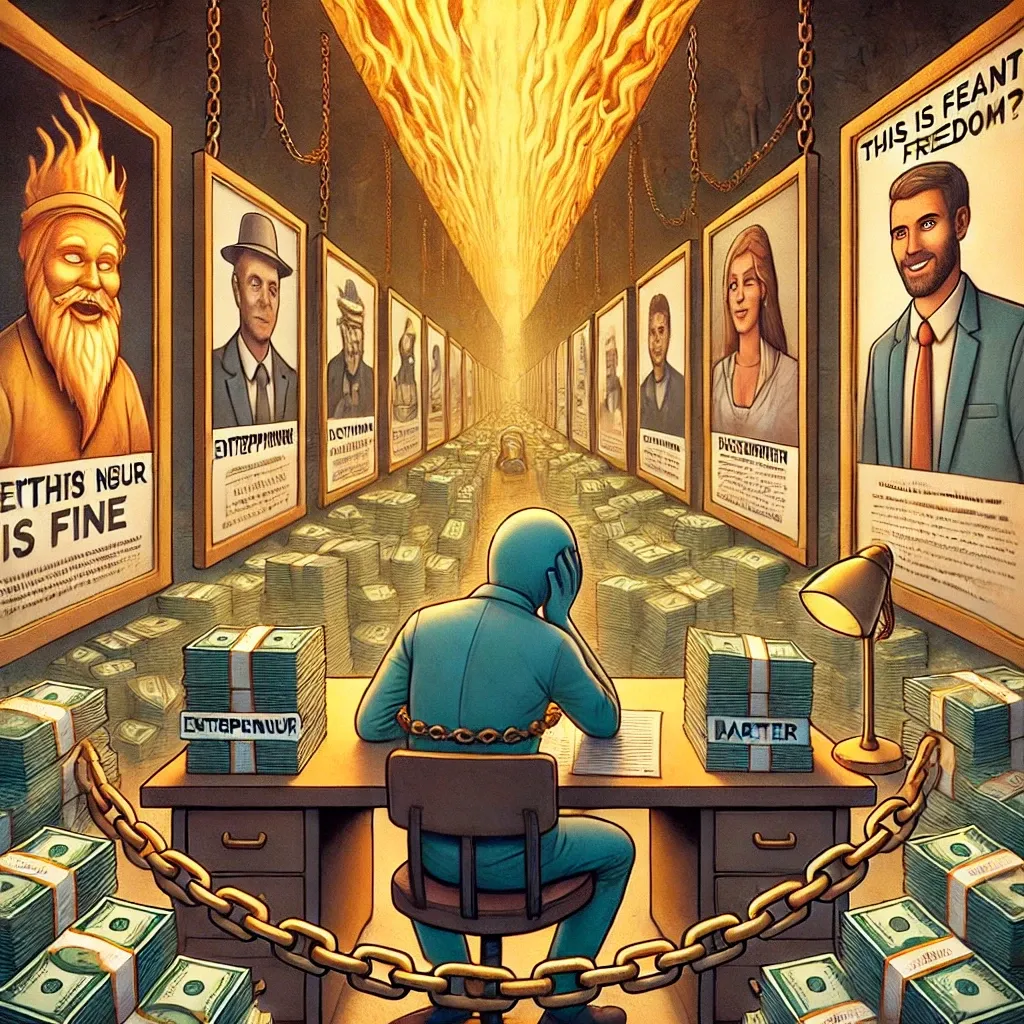
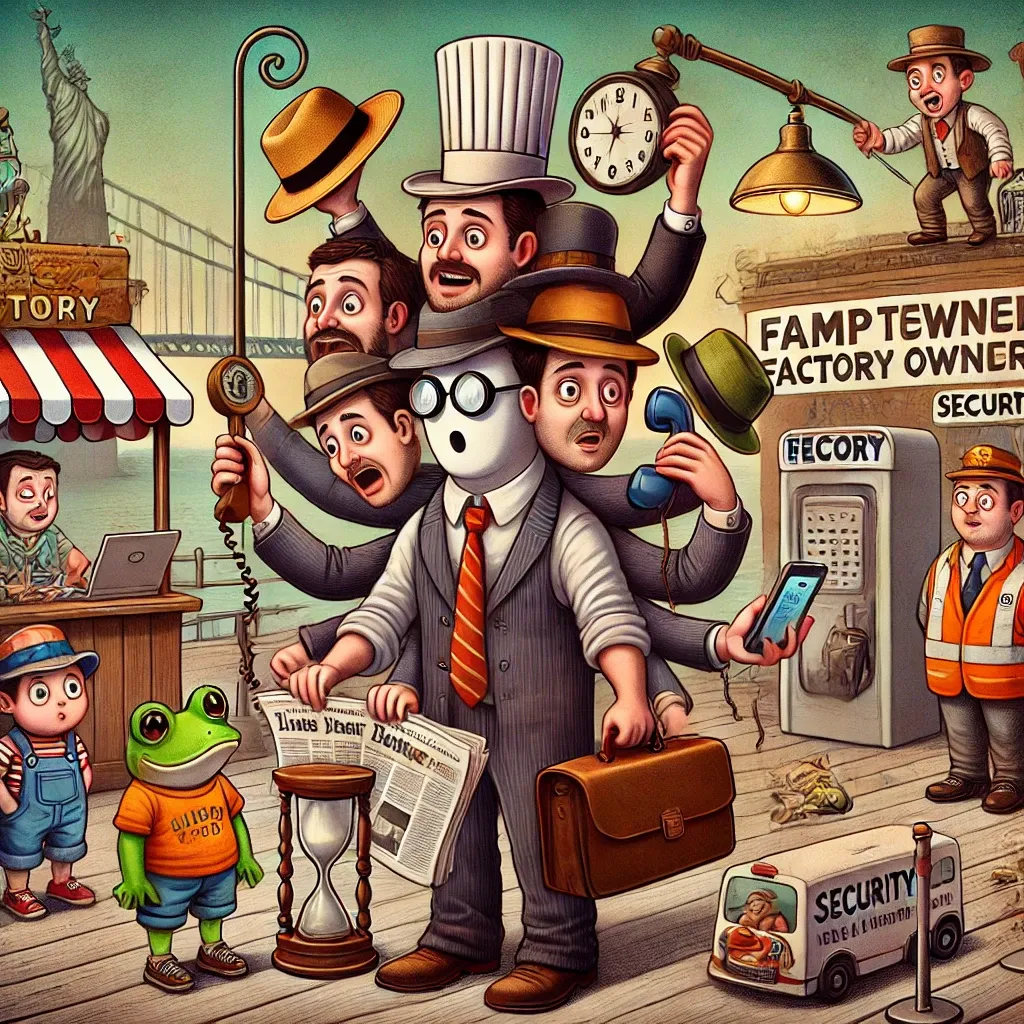
My Father's Kaleidoscope of Careers
Many things didn't make sense to me as a child; some still puzzle me today. My father was the embodiment of professional versatility, wearing so many different hats that it often left me wondering what defined success. I remember visiting his massive three-floor lamp manufacturing factory in Brooklyn when I was about seven. For a kid, the highlight was pushing buttons in that old industrial elevator and occasionally spotting the eccentric guy with a pet monkey on his shoulder. Beyond Brooklyn, my father operated another substantial factory on Staten Island (now a storage business) and one in Mariners Harbor that sticks in my memory because it's where I caught a toad I proudly brought home as a pet. On Staten Island alone, there must have been three other locations I vaguely recall, all part of the same business empire.
But my father's work identity extended far beyond manufacturing. He spent years as a bartender too—I remember the thrill of discovering a $10 bill in the bar's phone booth (yes, I'm that old—bars commonly had privacy phone booths) and feeling suddenly rich. There was also that maddening trick where someone had crazy-glued a quarter to the floor, which I instinctively tried to pick up every time I saw it.
The professional chameleon act continued. He worked on Ellis Island, which granted me the special privilege of climbing the Statue of Liberty while it was closed to the public, with no lines to wait in. During that behind-closed-doors tour, I saw the cremation ovens still preserved there today—learning the harsh reality of what happened when immigrants died during their journey to America.
There was also his stint working security in a tiny five-foot-square box near the Staten Island Ferry terminal in Manhattan. Those "take your son to work" days would have been unbearably boring if not for befriending a squirrel we named Frank, who would eagerly eat from my hand each day.
At another point, he worked for a company manufacturing Jewish products in Bensonhurst, which eventually became my first job at sixteen.
I'm undoubtedly forgetting other roles he played, but the point is that witnessing this kaleidoscope of careers created a stark contrast with my grandmother's unwavering advice: "Go to school, get a good job." These competing philosophies left me confused about which approach was right.

The Clash of Worldviews
The clash came to a head when, as a teenager, I developed an idea essentially identical to what would later become GrubHub—years before the first iPhone existed. The concept seemed brilliantly obvious: if you could call a dispatcher to find you a taxi, why couldn't you order McDonald's the same way? I meticulously crafted a business plan, remarkably detailed for a sixteen-year-old with zero business experience.
Bursting with pride, I presented my vision to my grandmother, anticipating how impressed she'd be with my forward-thinking ingenuity and attention to detail. As I waited for her response, the lengthening silence and the expression spreading across her face filled me with dread. She finally spoke: "I think you should... um... stay in school. Get your diploma," delivering the words with unmistakable disapproval.
I understand now her reaction wasn't personal, but at the time, that dismissal created within me a relentless drive to prove her—and anyone else who doubted entrepreneurial thinking—wrong.
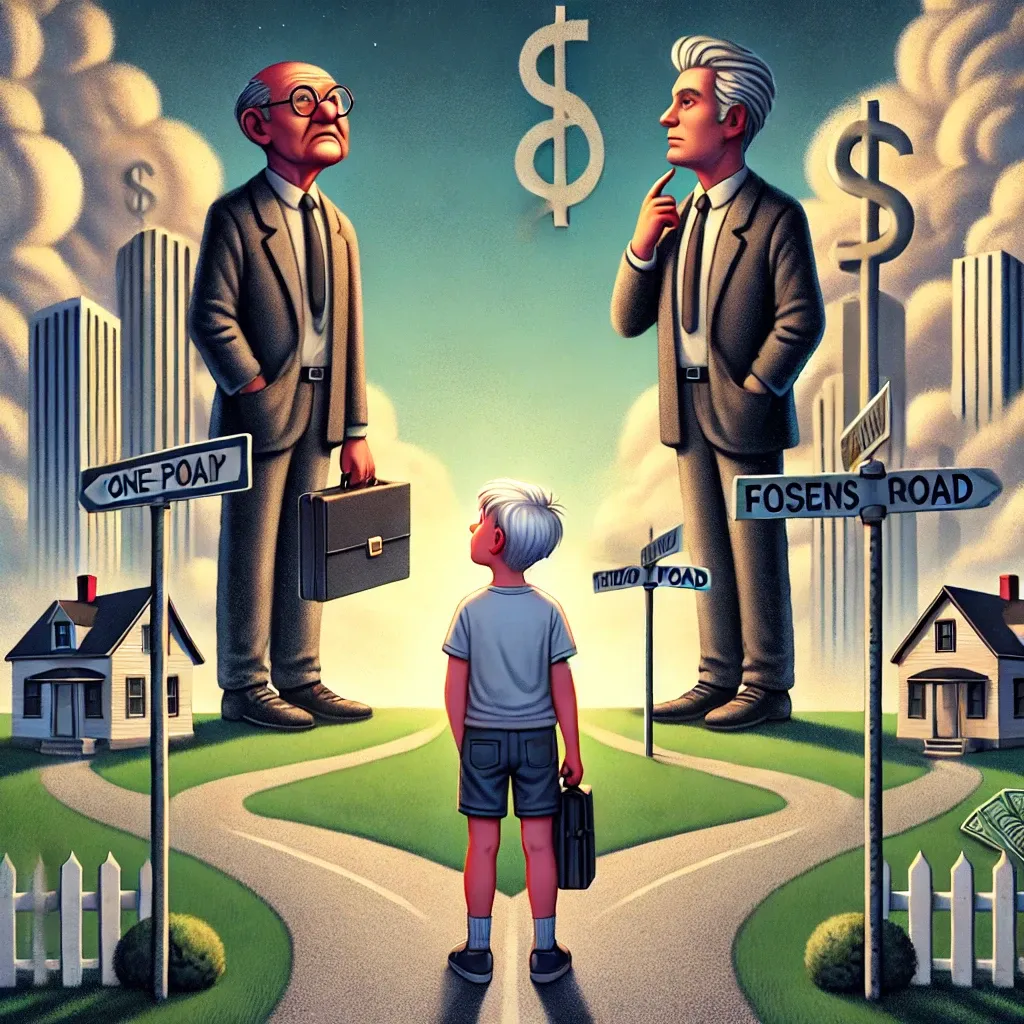
The "Rich Dad, Poor Dad" Revelation
The turning point came when a classmate introduced me to "Rich Dad Poor Dad." Even from just the summary, something connected deeply. I borrowed the book and devoured it faster than anything I'd ever read. Suddenly, everything made sense. The author's childhood paralleled my own confusion—growing up between his biological father (a teacher) and his best friend's father (a college dropout and lifelong entrepreneur). The book didn't judge which approach was right, but it illuminated their fundamentally different mindsets about money.
The theme was clear: the "poor dad" sought the comfort and security my grandmother advocated, while the "rich dad" embraced the entrepreneurial uncertainty my father lived. Yet interestingly, both types sought the same fundamental goal: more money.

From Scarcity to Abundance
Throughout my own quest for wealth—navigating cash flow challenges and entrepreneurial struggles—I've realized a profound truth: your relationship with money transforms dramatically when you shift from a scarcity mindset to having your basic needs securely met. Having experienced both realities, along with witnessing my father's diverse career path, I've come to understand that I wouldn't consider myself a failure if I never reached billionaire status. My only regret would be not living a fulfilling life throughout the journey.
I once encountered a quote that perfectly captures this insight: "Contrary to popular belief, it's not the pursuit of happiness. It's the happiness of the pursuit." While we need sufficient money to escape the constant stress of survival mode, the dream of millions serves primarily to provide options. For some people, these options become paralyzing. For others, they're simply resources enabling further growth.
The central truth I've discovered is that accumulating wealth and securing a stable career aren't what ultimately matter. What counts is the happiness you achieve and the memories you create along the way. A friend who runs a community called "Fatherhood Is Lit" promoting quality time between fathers and children puts it perfectly: "Presence over presents." This philosophy extends beyond parenting to encompass life itself.

The Freedom Paradox
When I reflect on my father's varied career path and the freedom he had to reinvent himself, I recognize something valuable that contradicted my grandmother's more traditional approach. He wasn't conventionally wealthy, but he possessed a freedom that many financially successful people lack—the ability to follow interests and opportunities without being trapped by golden handcuffs.
The money paradox reveals itself most clearly in the lives of those who've achieved significant wealth. Many find themselves with less freedom than they had before. The executive earning millions who can't take a spontaneous day off. The business owner whose lifestyle has expanded with their income, creating pressure to maintain that income regardless of whether the work remains fulfilling. The investor who spends more time worrying about protecting their wealth than enjoying what it could enable.
What makes this paradox especially insidious is our cultural programming that more money automatically means more freedom. The reality often proves opposite—as wealth increases, so do expectations, obligations, and lifestyle costs. The cage may be gilded, but it remains a cage.
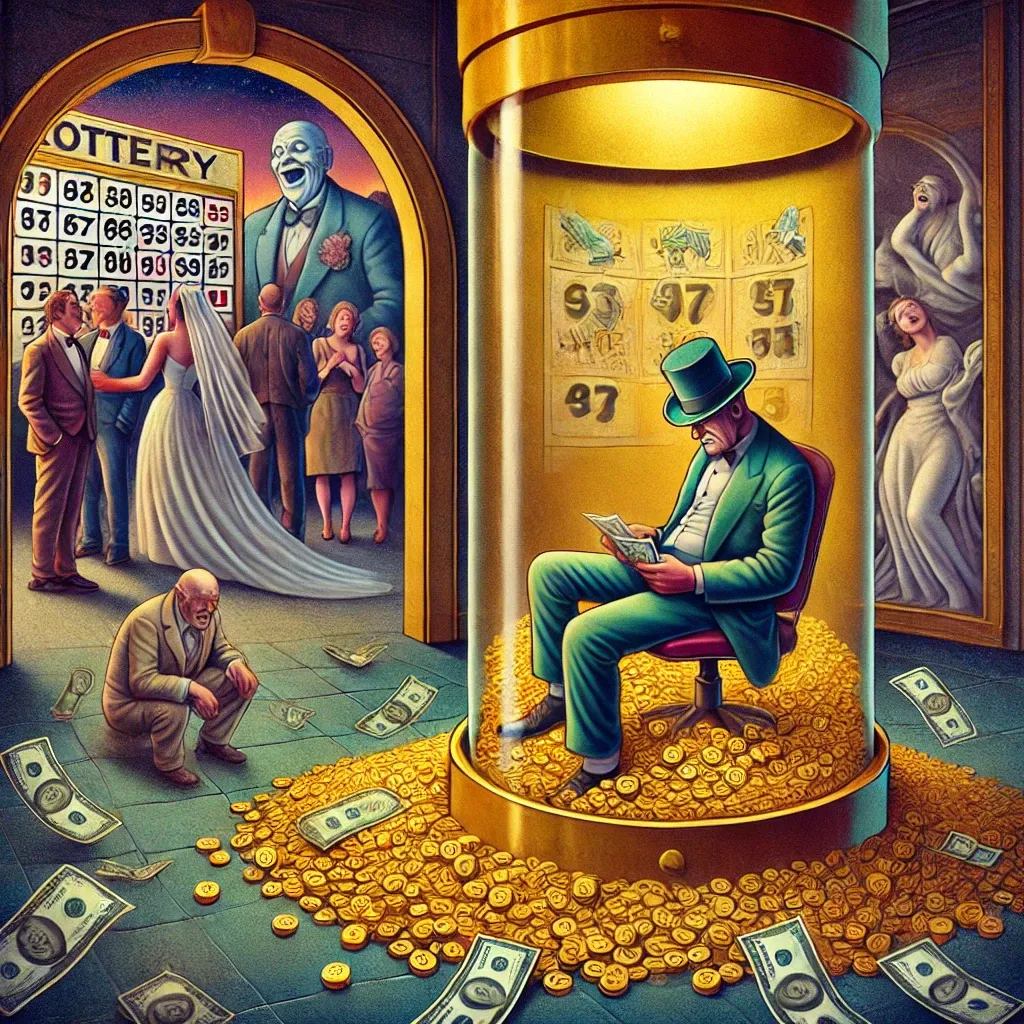
The Lottery Paradox
Everyone believes winning the lottery would be a dream come true. I don't, and I feel genuine sympathy for those who fail to see the full picture. Having money without fulfillment is hollow—an empty vault that echoes with what might have been.
The relationship between wealth and happiness isn't the simple equation most imagine. It's not that money automatically equals happiness; there's a critical distinction between correlation and causation. What makes wealthy people content isn't the money itself, but the journey that created the wealth—the challenges overcome, the skills developed, the relationships built along the way. The money, when attached to these meaningful experiences, becomes infused with purpose. It's this combination—not the dollars alone—that creates the fulfilled confidence outsiders misinterpret as "money made them happy."
The evidence is hiding in plain sight. Look at the well-documented statistics of lottery winners. If money directly equated to happiness, we would expect the vast majority to live happily ever after. The reality? Only a minuscule percentage do. Most experience a temporary happiness spike followed by a return to baseline or worse—relationship breakdowns, isolation, depression, and even bankruptcy. They received the money without the meaning, the reward without the journey.
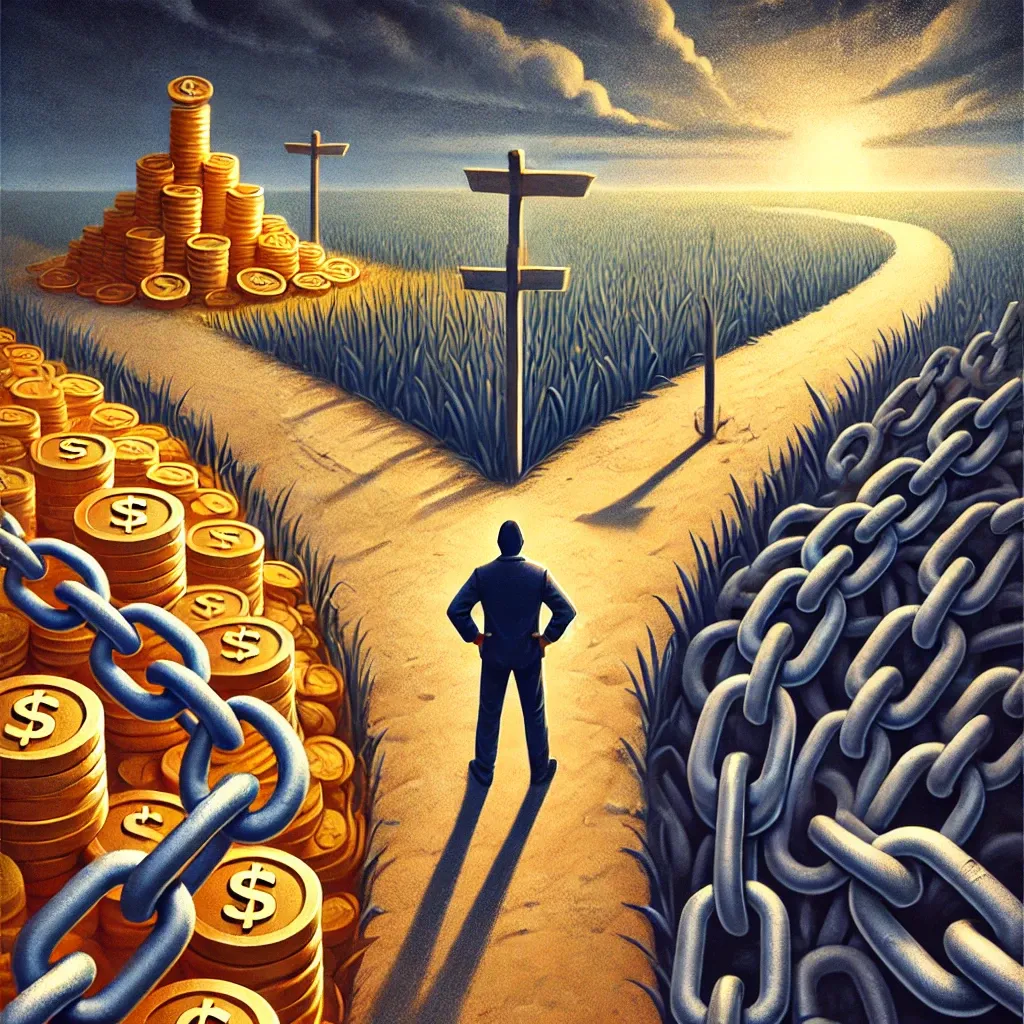
Redefining Our Relationship With Money
This isn't an indictment of money itself. Rather, it's about our relationship with money and the unconscious scripts we follow as our income grows. When we automatically upgrade our lifestyle with each financial advancement, we create new dependencies that require maintaining that income level. We trade time for money, then trade money for possessions that rarely add to our happiness.
SCARCITY MINDSET 🌧️ ABUNDANCE MINDSET ☀️
- Always needs more money - Knows "enough" point
- Anxiety about loss - Money as potential energy
- Compulsive upgrading - Purpose-driven spending
- Trades freedom for comfort - Trades comfort for freedom
The ultimate irony? What most people actually want isn't money itself—it's what they believe money will provide: freedom, security, respect, meaningful experiences, positive impact. Yet by blindly pursuing more money without questioning this assumption, many achieve financial "success" only to find themselves further from these true goals than when they began.

The Research Confirms It
What I've discovered through my own journey matches what researchers have found studying wealth and happiness. As the research shows, once our basic needs are met, additional money yields diminishing returns on our happiness. Scientists like Kahneman and Deaton found that day-to-day emotional well-being plateaus around $75,000 in annual income, while Jebb and colleagues discovered similar "satiation points" worldwide.
My father's varied career path unwittingly demonstrated something profound: freedom isn't about having unlimited resources—it's about having enough while maintaining the flexibility to pursue what matters. Many of us have this backwards. We chase wealth thinking it will give us freedom, but often find ourselves with "golden handcuffs" instead.
The research on lottery winners perfectly illustrates this paradox. Brickman's classic study found that after the initial euphoria, lottery winners weren't significantly happier than the average person. Even more telling, they reported taking less pleasure in everyday activities. The financial windfall created a contrast effect—everyday joys paled in comparison to the thrill of winning, resulting in a diminished capacity to enjoy life's simple pleasures.
I've seen this play out in my own entrepreneurial circles. Friends who achieved financial success often find themselves caught in what researchers call the "hedonic treadmill"—as income rises, so do expectations and lifestyle costs. Their success created a new baseline that quickly became normal, pushing them to continually seek more. The Swedish lottery study confirmed this pattern: winners reported higher overall life satisfaction but showed little improvement in day-to-day happiness. The security of wealth changed how they evaluated their life but didn't fundamentally alter their daily emotional experience.
This doesn't mean wealth is meaningless. Money absolutely matters—especially when it lifts someone from scarcity to sufficiency. The research is clear that moving from poverty to financial comfort creates substantial and lasting improvements in well-being. What's deceptive is our cultural belief that this upward trend continues indefinitely with more zeros in our bank account.
Perhaps most revealing is what happens at ultra-high wealth levels. Studies of millionaires found little difference in happiness between those worth $1-2 million versus $5-6 million. Only at extremely high levels—above $8-10 million—did wealthier millionaires report being significantly happier, and even then, the differences were modest. Yet when asked how much money would make them perfectly happy, millionaires consistently said they'd need two to three times their current wealth—regardless of how much they already had.
This explains why many financially successful people I know seem trapped on a treadmill of their own making. They've achieved material abundance but find themselves with less freedom than before. Their wealth created new obligations, expectations, and responsibilities—what the research describes as "complexity instead of joy." As one finance blog bluntly put it, "more money" often translates to "more complexity, more confusion, and more time spent mulling over options...adding up to less freedom."

Two Paths, Same Destination
My grandmother's "go to school, get a good job" perspective prioritized security, while my father's entrepreneurial approach emphasized flexibility and variety. Both sought prosperity but defined it differently. Now I understand that neither approach was inherently wrong—they were operating from different mindsets about what constitutes a good life.
What I've learned through this journey, supported by both personal experience and research, is that our relationship with wealth matters far more than the amount itself. Those who use money purposefully—to buy time, invest in experiences, strengthen relationships, or contribute to causes they care about—tend to derive more fulfillment than those who simply accumulate it.

Breaking Free from the Money Paradox
Freedom from the money paradox begins with awareness. Once you recognize the trap, you can consciously choose a different relationship with wealth—one that serves your true priorities rather than creating new dependencies.
The most successful people I know aren't those with the most zeros in their bank account, but those who've mastered using money as a tool rather than seeing it as the goal. They've defined their personal "enough" point—the threshold beyond which additional wealth yields diminishing returns for their happiness—and they focus on leveraging what they have to create meaningful experiences and impact.
| Real Wealth | Perceived Wealth |
|---|---|
| Time & Flexibility ⏳ | Luxury Items & Status Symbols 💎🚗 |
| Health & Experiences 🏞️🧘 | Complex Investments & Obligations 📊🏦 |
| Meaningful Relationships ❤️👨👩👧👦 | Reputation & External Validation 👔📸 |
Real wealth enhances freedom; perceived wealth creates obligations.
Ultimately, money is neither villain nor savior. It's simply potential energy that can be directed toward what truly matters. The challenge lies not in accumulating more, but in using what we have purposefully to expand our freedom rather than constrain it.
As I continue evolving my own relationship with wealth, I find myself returning to a simple question: Does this financial decision expand or contract my freedom? Not just in terms of what I can buy, but in how I spend my time, energy, and attention. True wealth might be better measured in these currencies than in dollars.
As we'll explore in Chapter 8, this paradox connects to the larger question of how we create systems that produce genuine success rather than its empty facsimile. The truly "lucky" people aren't those who stumble upon wealth, but those who design their relationship with money to enhance rather than diminish their freedom. This is the real cheat code to financial well-being—not accumulating more, but structuring what you have to serve your authentic priorities.
In the end, the money paradox reveals a profound truth that will echo throughout this book: what appears to be the solution often becomes the problem when pursued without awareness. Whether it's comfort, wealth, social validation, or even discipline—the very things we chase to improve our lives frequently become the chains that bind us when we fail to recognize their paradoxical nature.
The Paradox Framework Applied
Revelation Layer
The money illusion creates cognitive dissonance by revealing that greater wealth often leads to less freedom and satisfaction, not more. This fundamentally challenges our cultural programming that equates money with happiness and freedom. This disruption allows you to see how deeply your relationship with money is shaped by unconscious beliefs and social conditioning.
Recognition Layer
This paradox helps you recognize specific patterns:
How increased income often leads to lifestyle inflation that maintains the same financial pressure
The moments when pursuit of money conflicts with deeper values
How financial decisions are often made to impress others rather than enhance your well-being
The recurring thought that "just a little more" would solve your problems
Reflection Layer
These patterns likely developed from:
Evolutionary drives to accumulate resources and status
Early childhood messaging about money's relationship to worth and safety
Media and advertising that deliberately create a sense of insufficiency
Social comparison that redefines "enough" based on others' visible consumption
Reprogramming Layer
With this awareness, new possibilities emerge:
Defining your own personal "enough" based on actual happiness rather than comparison
Making financial decisions based on how they impact your freedom and well-being
Using money as a tool to create meaning and value rather than as a measure of worth
Consciously choosing which luxuries genuinely enhance your life and which create new constraints
Recognizing when pursuing money aligns with your values and when it diverts you from them
Take a moment to truly imagine how your life would change with $500,000 in your bank account. Not as an abstract number, but as a tangible reality.
On a piece of paper, write down with specific detail:
- What would you do immediately with this money?
- How would your daily routine change?
- What worries would disappear from your life?
- What new opportunities would become available?
- What wouldn't change at all?
Now, stretch your imagination further. What if that amount was $10 million instead?
Write down:
- What additional problems would this solve beyond what $500,000 would address?
- What specific activities would you pursue that $500,000 wouldn't allow?
- How much of your time would be devoted to managing this wealth?
- Would you need to hire financial advisors, tax specialists, or security consultants?
- How might your relationships change with family, friends, and strangers?
- What new anxieties might emerge about preserving or growing this fortune?
Reflection Questions:
- How did your desires shift between the two scenarios?
- Were the desires that emerged with $10 million truly yours, or were they programmed responses based on social expectations?
- At what point would more money begin to decrease rather than increase your freedom?
- What does this exercise reveal about your relationship with money and wealth?
The revealing part of this exercise is noticing where your mind goes. For the $500,000 scenario, most people focus on practical freedoms gained. For the $10 million scenario, many begin justifying complex obligations that ultimately create new constraints—the money paradox in action.
